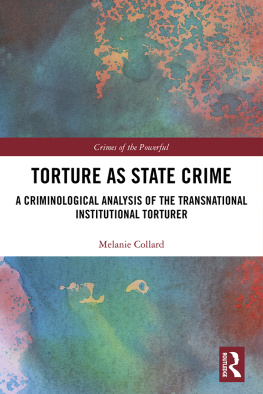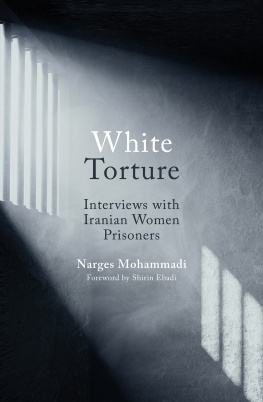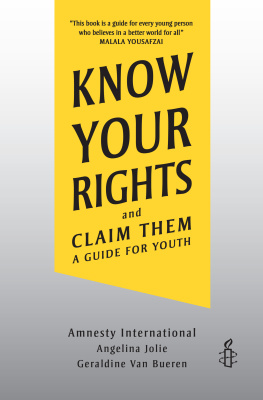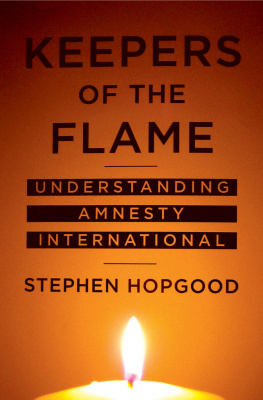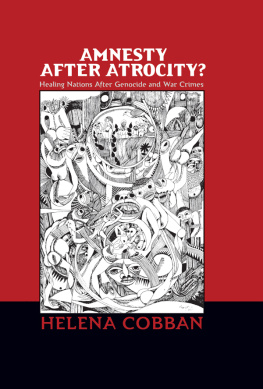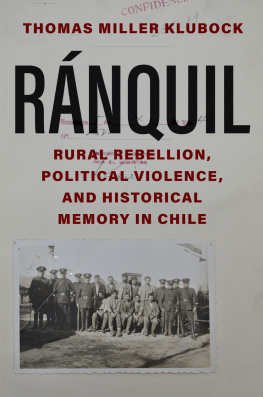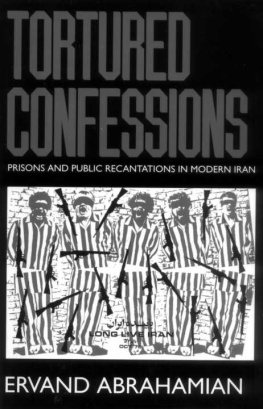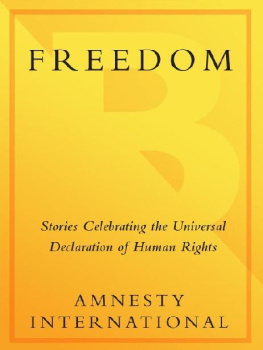Renata Meirelles - State Violence, Torture, and Political Prisoners: On the Role Played by Amnesty International in Brazil During the Dictatorship (1964–1985) (Crimes of the Powerful)
Here you can read online Renata Meirelles - State Violence, Torture, and Political Prisoners: On the Role Played by Amnesty International in Brazil During the Dictatorship (1964–1985) (Crimes of the Powerful) full text of the book (entire story) in english for free. Download pdf and epub, get meaning, cover and reviews about this ebook. year: 2019, publisher: Routledge, genre: Politics. Description of the work, (preface) as well as reviews are available. Best literature library LitArk.com created for fans of good reading and offers a wide selection of genres:
Romance novel
Science fiction
Adventure
Detective
Science
History
Home and family
Prose
Art
Politics
Computer
Non-fiction
Religion
Business
Children
Humor
Choose a favorite category and find really read worthwhile books. Enjoy immersion in the world of imagination, feel the emotions of the characters or learn something new for yourself, make an fascinating discovery.

- Book:State Violence, Torture, and Political Prisoners: On the Role Played by Amnesty International in Brazil During the Dictatorship (1964–1985) (Crimes of the Powerful)
- Author:
- Publisher:Routledge
- Genre:
- Year:2019
- Rating:5 / 5
- Favourites:Add to favourites
- Your mark:
State Violence, Torture, and Political Prisoners: On the Role Played by Amnesty International in Brazil During the Dictatorship (1964–1985) (Crimes of the Powerful): summary, description and annotation
We offer to read an annotation, description, summary or preface (depends on what the author of the book "State Violence, Torture, and Political Prisoners: On the Role Played by Amnesty International in Brazil During the Dictatorship (1964–1985) (Crimes of the Powerful)" wrote himself). If you haven't found the necessary information about the book — write in the comments, we will try to find it.
State Violence, Torture, and Political Prisoners discusses the activities of Amnesty International during the period of Brazils dictatorship (19641985). During the dictatorship, Amnesty assisted political prisoners who were submitted to torture and helped to publicise charges of torture against agents of the military regimes repressive apparatus. Through a specific examination of Amnestys work with Brazilian political prisoners, this book explores how Amnesty adapted its organisational principles such as non-violence and the focus on individual cases during this time.
In 1967 Amnesty experienced a severe internal crisis which prompted the organisation to make structural changes. These changes enabled it to expand its activities beyond Europe to Latin America, including Brazil. This book examines one of Amnesty Internationals first major campaigns against torture and the impact this had on the organisations development of a new agenda. Bringing a critical and historical perspective on Amnestys work, the book contributes to the debate on the role of human rights organisations in addressing human rights abuses worldwide. It makes a significant contribution to international research on state crime, human rights, and torture.
Renata Meirelles: author's other books
Who wrote State Violence, Torture, and Political Prisoners: On the Role Played by Amnesty International in Brazil During the Dictatorship (1964–1985) (Crimes of the Powerful)? Find out the surname, the name of the author of the book and a list of all author's works by series.

